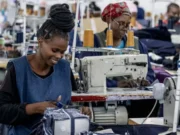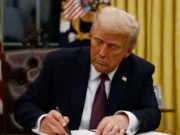The Trades Union Congress (TUC) has advocated the reform of Ghana’s trade policies to make it consistent with employment objectives.
The TUC in a comment of the 2025 Budget Statement and Economic Policy of the Government also noted that rather than a singular focus on inflation, the Bank of Ghana must deploy its financial and human resources to the fight against joblessness as well.
It said in the TUC’s submission to Government on the 2025 budget, it indicated that Ghana’s recurring economic challenges stemmed from a flawed macroeconomic framework that had been implemented since the mid-1980s.
It said in that framework; employment was treated as a residual outcome of economic growth and macroeconomic stability.
The TUC said this assumption had proven to be false given that in the last 40 years of positive economic growth, joblessness had increased, and employment had shifted to the informal sector.
“Good jobs have become harder to obtain.
While overprioritizing macro stability, the framework has resulted in recurring bouts of macroeconomic instability,” it stated.
“This is reflected in the persistence of the inflation problem in Ghana, high interest rates, subdued economic growth, and depreciating national currency.”
The TUC said the macroeconomic policy framework had led Ghanaians to hand over the natural resource sector – the most important sector of the Ghanaian economy – to foreign interest.
Adding that supported by a regime of massive and senseless fiscal giveaways, the framework effectively strips us of ownership of our gold and other natural resources.
It reiterated that other important elements of this flawed macroeconomic policy framework were the liberalisation of external trade and inflation-targeting.
The TUC said trade liberalisation had over-exposed domestic enterprises to unsustainable foreign competition and wiped out many of them.
It said inflation-targeting had produced one of the highest interest rates in Africa.
It intimated that as part of the 2025 budget process, the TUC had called for a reset and change of “…the failed macroeconomic policy framework”.
The TUC said their objective was for a new model of economic management that would lead to “faster economic growth” and accelerate the creation of decent employment.
“While the 2025 budget appears to recognise the need to “…reset our economic model…”, it nevertheless failed to lead the country away from the moribund macroeconomic policy framework.”
It said the 2025 budget remains within the same macroeconomic policy framework as its predecessors; declaring that in a business-as-usual mode, 2025 sets target for inflation and growth but none for employment.
The TUC said it rests on the flawed assumption that once the nation tames inflation and the economy grows, good jobs would follow.
It said a major effect of the current macroeconomic policy framework was that it had constrained the growth potential of the economy in the past.
It underscored that sticking with the framework meant that the nation could only grow at four per cent in 2025.
It said in the last 40 years economic growth had averaged 5.5 per cent.
The TUC said countries that had transformed their economies in the last 40 years including China sustained double-digit growth for 30 years or more.
It said given population growth of over two per cent and that fact many of the growing sectors were in foreign hands, and subject to resource repatriation, four per cent growth was anemic growth.
Adding that it changes virtually nothing.
It said the resetting agenda must incorporate fundamental changes to the nation’s macroeconomic policy.
“We must grow faster than we have done in the last 40 years.”
The TUC said the policy framework must address the employment challenge and give hope to the youth; saying “We must end the colonial domination of our natural resource sector”.









































